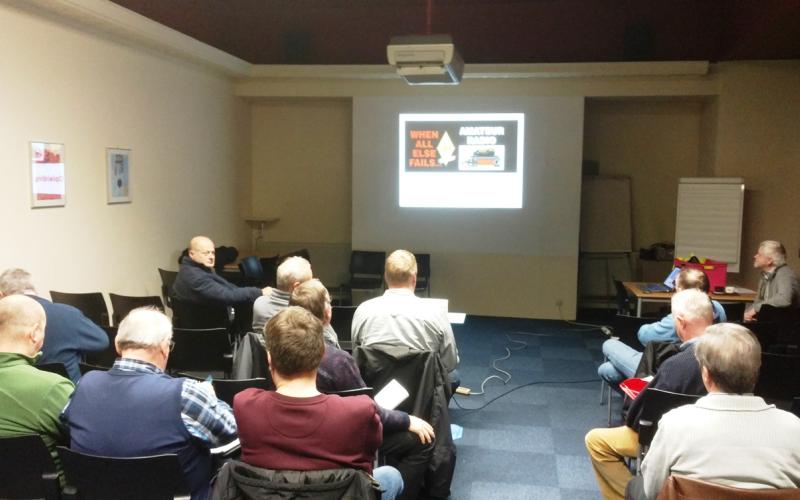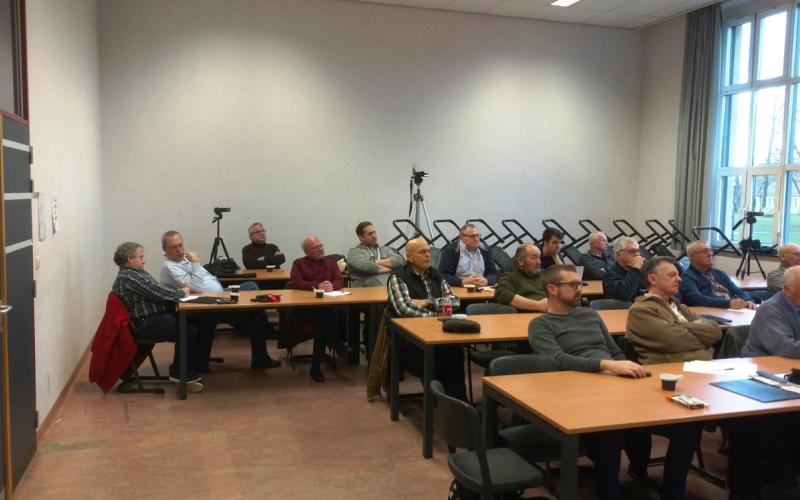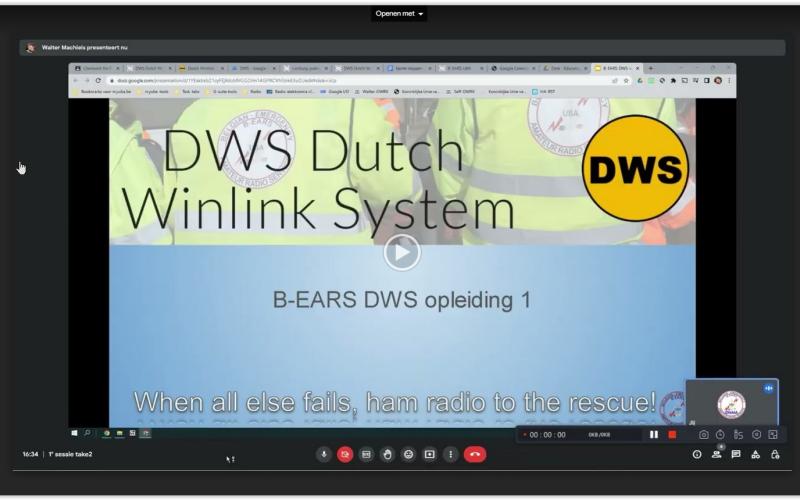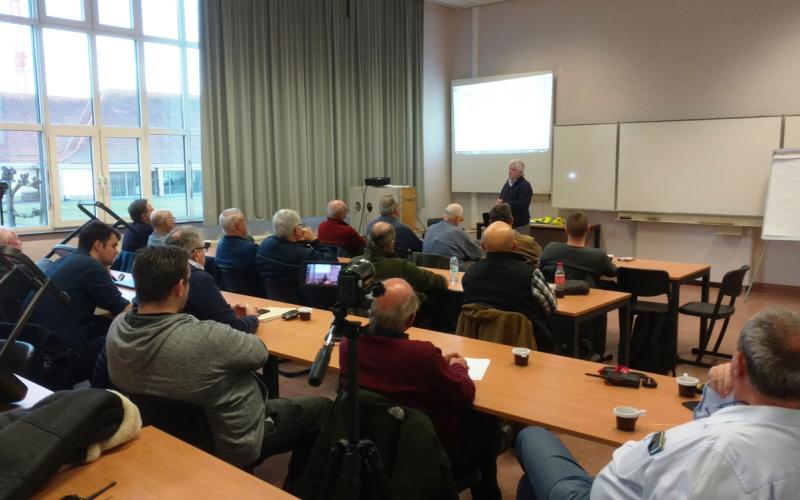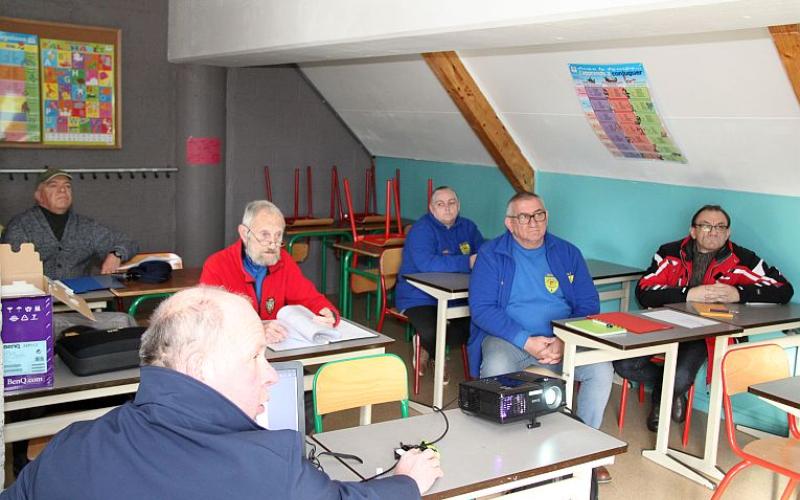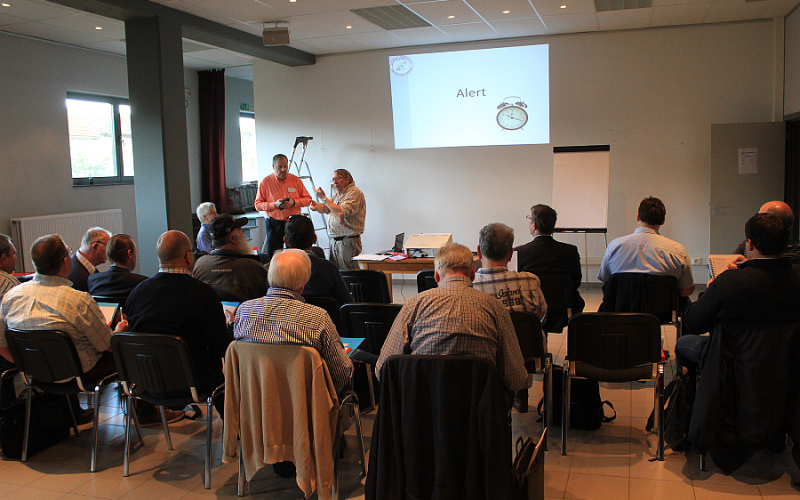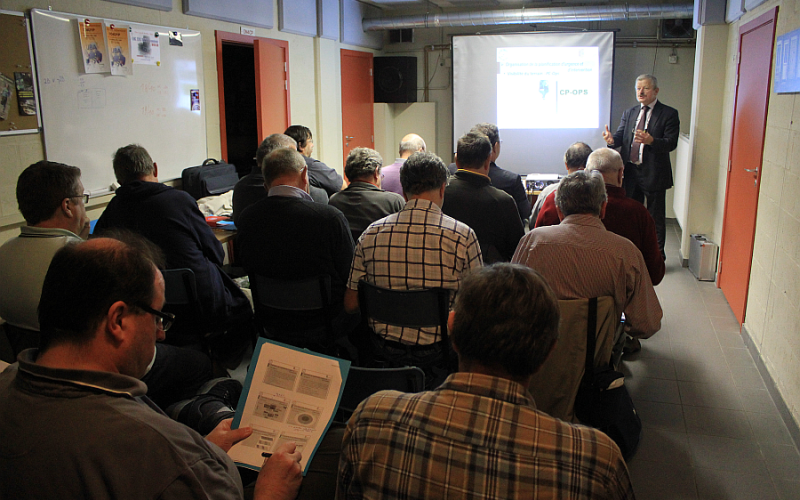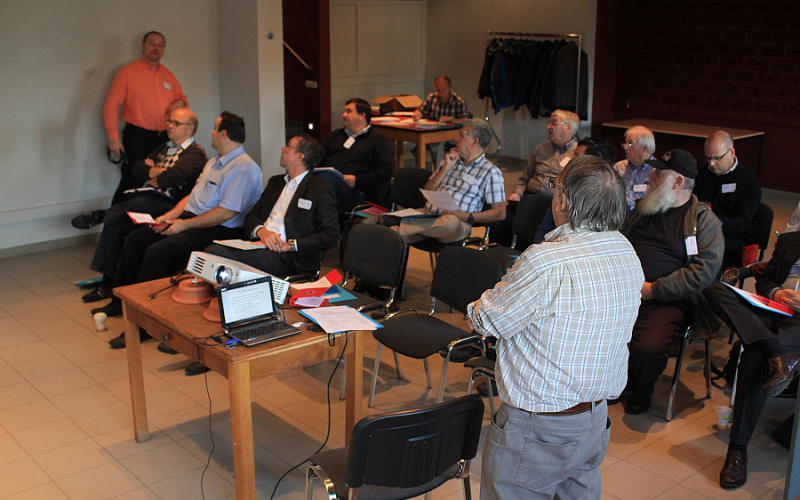Our partners expect us to provide quality service in situations of tension and stress in emergency plans.
We must comply with the existing government structures and keep our commitments.
It is therefore necessary to establish a code of conduct and to implement the rules that are indispensable for the proper functioning of the B-EARS service. These rules apply not only in emergencies, but also during exercises and other actions to promote our activities.
Being a member of B-EARS is a voluntary commitment to help society in the event of a crisis or collective emergency, it is in no way a pass, a privilege or a free pass during an event or disaster.
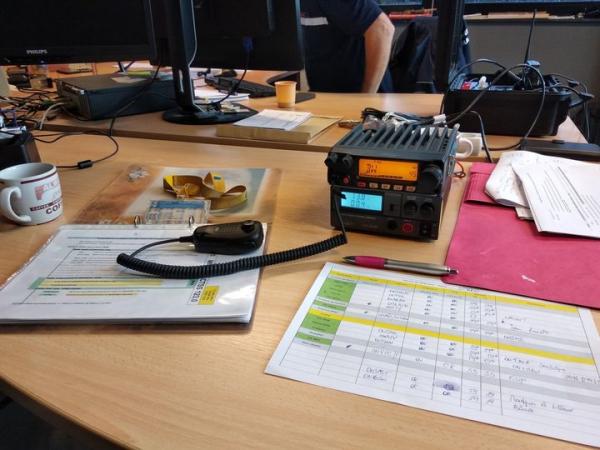
Operational Command Post Nivelles Fire Department 12/16/2018
Each member of B-EARS must adhere to a Rule of Internal Order . They must subscribe to these rules when they apply for membership.
A course that enables the volunteer operator to understand the language used in everyday jargon by emergency plan managers and our contacts, so that he can respond with maximum reactivity.
The B-EARS course explains the distribution of power between the federal, regional and community entities in our country, from which it follows that we have different interlocutors in our mission.
Realizing that this is not an everyday environment for the operator, regular exercises at the sites assigned to us (dams, towers with very high infrastructure, crisis centers, etc.).
It is also a technical challenge because our equipment is affected by other operators on the same sites, but it is still in the continuity of our hobby, we must counteract the desensitization of our equipment and develop skills in the use of the spectrum and the adjustment of bandpass filters.
The same exercises also allow us to learn how to operate together among radio amateurs and with our partners. It is also a way to demonstrate our strengths and improve our weaknesses.
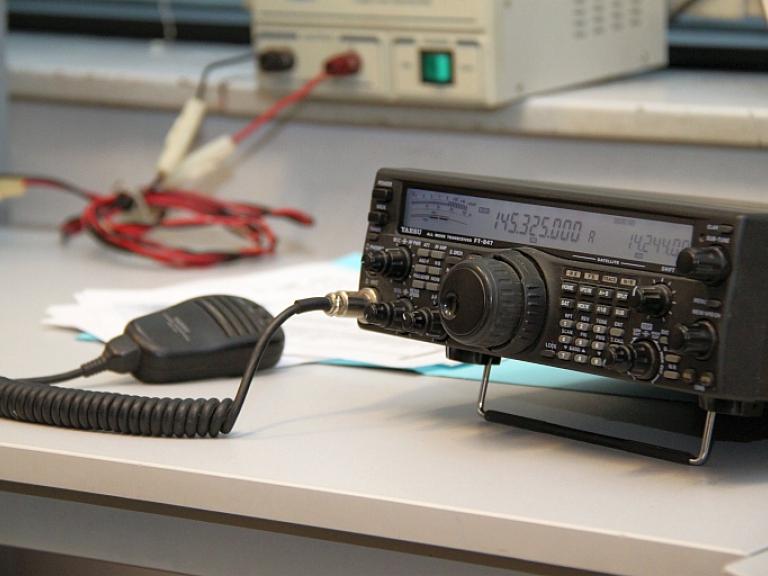
ON7FOX Charles during an exercise from 112 HAI on 03/01/2015
The same exercises also allow us to learn how to operate together among radio amateurs and with our partners. It is also a way to demonstrate our strengths and improve our weaknesses.
REV 11 02 2023
Would you like to read on?
This page is exclusively for registered UBA members.
Log in as a member or become a UBA member to get limitless access to all content of this website.
